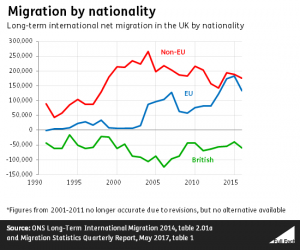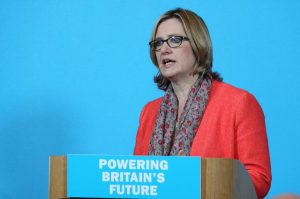In a proposal yet to be made public BT/Openreach has proposed a behind closed doors deal with the Government that would make 10Mbps broadband available to the remaining 5% of homes in the UK by 2022.
This is a blatant attempt to undermine the USO, allow BT to keep their monopoly control over our Broadband infrastructure and protect their profits. BT, a multinational private company, received £1.7bn in taxpayer cash as part of the Broadband Development UK (BDUK) initiative, money used to pay for basic infrastructure that BT should have paid for themselves. At a time when the UK badly needs investment in infrastructure to help grow the economy, why is the government not investing in a broadband infrastructure fit for the digital future?
The proposal would cost BT between £450m – £600m (“…depending on the final technology solution…”, Gavin Patterson, CEO of BT). This would obviate the need for USO regulation, they say, and they would recover the cost of their investment by leasing rural networks to its rivals. I think its rivals might have a view on this!
Also, it is not clear
- what would be the cost to the consumer?
- what data caps/limitations would be imposed?
- what technologies would be used – BT are talking about a mix of fibre, copper, fixed wireless and satellite?
- how will their proposed solutions (including satellite) meet the long term UK infrastructure requirements such as voice over IP telephony?
It is also arguable that 10Mbs is insufficient to meet future requirements – in 2016 Peers pushed the government to introduce a 30Mbps minimum speed, a demand that the Government later watered down. According to Ofcom “A 10Mbit/s download speed may be sufficient now but may need to evolve over time.” (1)

In March 2016, Karen Bradley the Secretary of State for Culture, Media and Sport (now the Department of Digital, Culture, Media ans Sport) wrote to Ofcom requesting technical advice and recommendations on the design of the broadband USO. Their findings were published in December 2016 (1)
The Ofcom report considered three possible USO scenarios:
- Scenario 1: a standard broadband service, characterised only by a 10Mbit/s download speed;
- Scenario 2: a more highly specified standard broadband service, adding upload speed (1Mbit/s), latency (medium response time), maximum sharing between customers (a ‘contention ratio’ of 50:1), and a defined data cap based on current usage profiles (100GB per month); and
- Scenario 3: a superfast broadband service, with download speeds of 30Mbit/s, upload of 6Mbit/s, fast response times, a ‘committed information rate’ of 10Mbit/s (i.e. guaranteed 10Mbit/s at all times) and an unlimited usage cap.

The 3 Ofcom Technical Scenarios ((1), page 16)
They estimated the cost, based on current (2016) network availability, for delivering universal broadband would range from £1.1bn for a standard broadband service to £2.0bn for superfast broadband. So, for £2bn we could have superfast broadband delivering benefits to homes and businesses across the whole of the UK and future proofing our broadband infrastructure. Compare this to the £56bn currently estimated for HS2 that would deliver limited benefits to only a very small part of the UK. The cost per premises connected is a mere £680 for Scenario 3, the lowest cost per premises connected of the 3 Ofcom scenarios.
Ofcom also analysed available technologies and considered their capability to meet their 3 technical scenarios. Technologies considered included Fibre to the Cabinet (FTTC), Fibre to the Premises (FTTP), fixed wireless and mobile, and satellite.

Satellite solutions are not capable of meeting scenarios 2 and 3 and would be difficult to scale up to meet scenario 1. They also suffer from significant latency making them inappropriate for applications such as video calling (Skype, Facetime, etc) so they do not provide a good long term infrastructure solution.
Finally, Ofcom calculated the cost per premises connected for each of the 3 technical scenarios and it turns out that Scenario 3, the ‘superfast’ scenario is the most cost-effective long term solution.

It is clear from the Ofcom analysis that an investment of £2bn (£680 per premises connected) would provide a ‘future-proof’ infrastructure investment, using a mix of FTTC and FTTP, providing super-fast broadband across the whole of the UK. This investment would generate huge economic and societal benefits and put the UK at the forefront of the digital future. BT are set on preventing this from happening so they can protect their own commercial interests and will continue to do what they have always done – refuse to invest in the future infrastructure of our country until someone else pays for it. It’s time the UK government confronted BT, broke up the BT monopoly, and provided the infrastructure investment the country needs, not what BT condescends to provide when it gets around to it.
(1) Achieving decent broadband connectivity for everyone.
Technical advice to UK Government on broadband universal service.
16 December 2016
https://www.ofcom.org.uk/consultations-and-statements/category-1/broadband-uso



